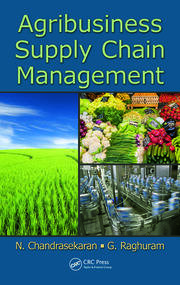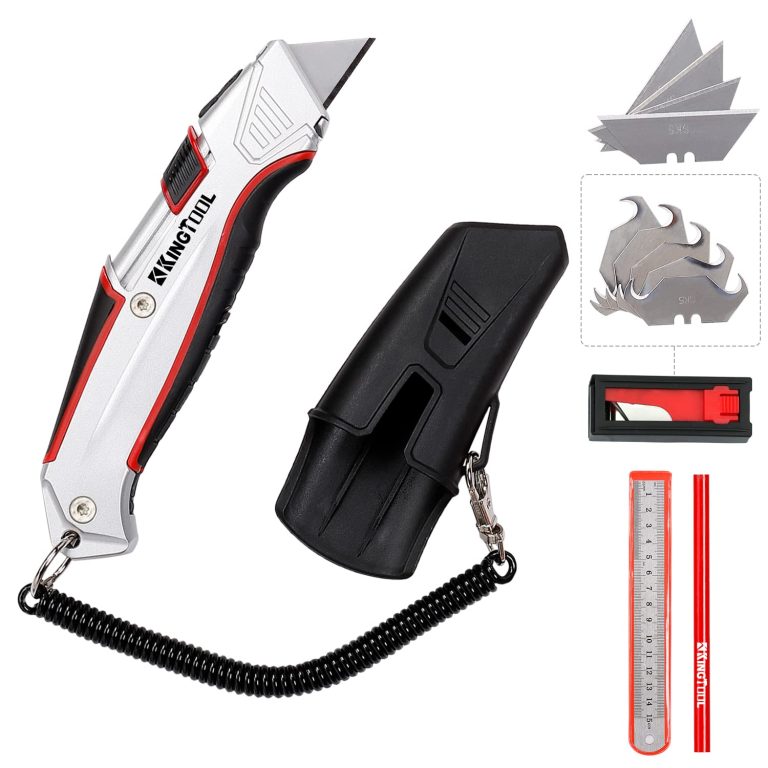9 Best Books on Agribusiness Supply Chains and Sustainable Practices
Are you looking to dive into the world of agribusiness supply but don’t know where to start? With the right resources, you can gain valuable insights and practical knowledge to navigate this complex industry. From understanding supply chain logistics to mastering sustainable practices, the right books can be your stepping stones to success.
In this article, we’ll explore the 9 best books on agribusiness supply that can equip you with the tools and strategies needed to thrive. Whether you’re a seasoned professional or a curious beginner, these books offer a wealth of information to help you make informed decisions and drive your agribusiness forward.
1. Understanding Agri-Business Supply Chains
Understanding agri-business supply chains is vital for navigating the complexities of today’s market. This section delves into a highly regarded book that explains the fundamentals.
Book Overview and Key Concepts
The book provides a comprehensive overview of how agri-business supply chains operate, from production to distribution. It covers essential concepts like inventory management, logistics, and the integration of technology in supply chain operations. You’ll find case studies and real-world examples that illustrate successful strategies and common pitfalls. The book demystifies the complexities of supply chain management, making it accessible for both beginners and seasoned professionals.
Importance for Today’s Agri-Business Professionals
Understanding supply chains is crucial for staying competitive in the agri-business sector. This book equips you with the knowledge to improve efficiency, reduce costs, and implement sustainable practices. It underscores the importance of adopting modern technologies for better decision-making and highlights strategies for managing disruptions. By mastering these concepts, you’ll be well-positioned to navigate the challenges and opportunities in today’s dynamic market.
2. Strategic Management in Agri-Business
Strategic management is crucial for navigating the complexities of agribusiness. This book provides a deep dive into effective strategies for success.
Insights into Effective Strategy Formulation
Strategy formulation is key to thriving in agribusiness. The book explains how to analyze market trends, understand competitive dynamics, and leverage technology. It highlights the importance of aligning resources with long-term goals. You’ll learn about risk management, succession planning, and decision-making frameworks. These insights help you create resilient strategies that adapt to changing market conditions.
Case Studies Highlighted in the Book
Case studies provide practical examples of strategic management. The book includes real-world scenarios from successful agri-business enterprises. You’ll find cases on sustainable farming practices, diversification strategies, and supply chain integration. Each case study offers lessons on overcoming challenges and seizing opportunities. These examples will inspire you to implement effective strategies in your own business.
3. Technological Innovations in Agriculture
Understanding the role of technology in agriculture is crucial for modern agribusiness success. This section delves into how technological advancements are reshaping the farming landscape.
Exploration of Modern Agri-Tech
Examining the latest agri-tech trends highlights innovations that enhance efficiency. Precision agriculture, for example, uses GPS and sensors to optimize field-level management. Drones offer real-time monitoring and data collection, while IoT devices streamline operations by automating irrigation and fertilization. These technologies not only increase productivity but also reduce resource consumption, promoting sustainability.
How This Book Helps Integrate Technology in Farming
This book provides actionable insights on integrating technology into farming practices. It covers the implementation of smart farming tools, such as automated machinery and advanced analytics. Real-world case studies illustrate successful tech integration, offering step-by-step guides. You’ll learn how to leverage data for better crop management, improve supply chain operations, and enhance overall farm performance. This knowledge empowers you to adopt tech solutions that drive growth and sustainability in your agribusiness.
4. Economic Principles of Agri-Business
Understanding economic principles is essential for anyone involved in agribusiness. It helps you make informed choices that can lead to better profitability and sustainability.
Fundamental Economic Theories Applied to Agriculture
Grasping basic economic theories can revolutionize your approach to agribusiness. Supply and demand directly impact your products’ pricing and availability. Knowing the elasticity of demand can guide you in setting prices that maximize revenue. Marginal cost analysis helps you understand the cost-benefit ratio of increasing production, while economies of scale can inform your decisions on expanding or reducing operations.
Practical Applications and Examples
Economic theories may sound abstract, but they’re highly practical in agriculture. For instance, if you notice a surplus of your crops in the market, lowering prices slightly can help sell off the excess. Implementing cost-effective technology can lower your marginal cost, making each additional unit of produce cheaper to grow. Examining case studies from successful farms that have leveraged these principles can offer invaluable insights for your own operations.
5. Global Agri-Business Marketing Strategies
When expanding your agri-business to a global market, effective marketing strategies are crucial. By leveraging specific techniques and learning from international success stories, you can achieve a wider reach and higher sales.
Marketing Techniques for Global Reach
Utilize Digital Marketing Channels
Expanding online is essential. Use social media, e-commerce platforms, and search engine optimization (SEO) to reach a global audience. Facebook, Instagram, and LinkedIn are valuable for targeted advertising and brand awareness.
Adapt Products to Local Markets
Customization is key. Adapt your products to suit local tastes and preferences. For example, modify packaging and labeling to meet cultural and regulatory standards in different countries.
Build Strong Partnerships
Collaboration aids expansion. Form alliances with local distributors, retailers, and influencers to promote your products. Examples include working with local farmers’ markets and food fairs to increase visibility.
Success Stories from Around the World
Organic Valley’s International Expansion
They succeeded by emphasizing organic and grass-fed products. By localizing their offerings and collaborating with local farmers, they penetrated markets in Europe and Asia.
JBS’s Market Penetration in China
JBS tailored its marketing to local consumers’ preferences for high-quality meat. By forming partnerships with local retailers, they became a leading meat supplier in China.
New Zealand’s Dairy Industry
Their strategy involved exporting premium dairy products. Fonterra, a key player, used digital marketing and trade partnerships to reach markets in the Middle East and Southeast Asia.
Learning from these examples, you can implement similar tactics to enhance the global reach of your agribusiness.
6. Sustainable Practices in Agricultural Supply
Sustainable practices in agricultural supply chains are crucial for long-term viability. These ensure environmental stewardship, economic profitability, and social responsibility.
Sustainable Methods and Their Benefits
Rotating Crops: Crop rotation prevents soil depletion, reduces pest problems, and increases crop yield. By alternating the types of crops grown, you can maintain soil fertility and improve biodiversity.
Integrating Livestock: Integrating livestock and poultry with crops can reduce waste and improve soil quality. Livestock waste can be used as organic fertilizer, enhancing soil health and reducing reliance on chemical inputs.
Conserving Water: Implementing water conservation techniques, like drip irrigation, helps you manage water resources more efficiently. These methods reduce water usage and minimize runoff, benefiting both the environment and your bottom line.
Impact on Global Food Security
Reducing Waste: Adopting sustainable practices decreases food waste throughout the supply chain. Efficient processes ensure more produce reaches consumers, enhancing food security.
Ensuring Supply: Sustainable methods help stabilize agricultural production. By maintaining soil health, conserving water, and optimizing resource use, you’re better equipped to meet the growing global food demand.
Promoting Resilience: Sustainable practices build resilience against climate change and extreme weather. Adapting to these challenges secures food supplies and strengthens food systems worldwide.
7. Agricultural Policy and Regulatory Frameworks
Understanding agricultural policy and regulatory frameworks is crucial for navigating the complexities of the agribusiness supply chain. These frameworks impact various aspects of farming operations, from production to distribution.
Overview of Agricultural Policies
Agricultural policies shape the landscape of food production and distribution. They include subsidies, tariffs, and trade agreements that affect how crops are grown, processed, and sold. For example, subsidies can lower production costs, making it easier for farmers to operate sustainably. Trade agreements, on the other hand, provide access to international markets, expanding business opportunities. Familiarizing yourself with these policies helps you make informed decisions and stay compliant with regulations.
Impact on Agri-Business Operations
Regulatory frameworks dictate the standards for food safety, environmental protection, and labor laws. These regulations ensure that agribusinesses maintain high-quality standards while protecting natural resources and farm workers’ rights. For instance, food safety regulations require robust tracking systems to monitor the supply chain, ensuring traceability from farm to table. Environmental regulations may mandate practices like crop rotation and water conservation to sustain both the land and community. Adhering to these frameworks not only keeps you compliant but also enhances your business’s reputation and sustainability practices.
8. Risk Management in Agricultural Production
Managing risks in agricultural production is crucial for long-term sustainability and profitability.
Identifying and Mitigating Risks
Identify potential risks to mitigate potential losses. Risks in agriculture include weather conditions, pests, diseases, and market fluctuations. Use historical data and forecasting tools to predict weather patterns. Develop pest and disease management plans with biological controls and crop rotation strategies. Diversify crops and market channels to spread financial risk. Understand global market trends and consumer preferences to adjust production plans accordingly.
Tools and Techniques for Risk Management
Utilize tools to manage risks effectively. Crop insurance protects against crop failure due to weather, pests, or diseases. Financial planning tools help manage budgets and forecast revenues and expenses. Implement precision agriculture technologies like soil sensors and GPS mapping for efficient resource use. Use decision-support systems to analyze data and make informed management decisions. Leverage software solutions for supply chain management to track and optimize production, storage, and distribution processes.
By understanding and applying sound risk management practices, you’ll ensure your agricultural business thrives despite uncertainties.
9. Future Trends in Agri-Business
The agribusiness industry is rapidly evolving with innovations and emerging trends shaping its future. Staying ahead of these trends can give you a competitive edge.
Innovations and Emerging Trends
Precision Agriculture: Technology like GPS and IoT allows you to monitor and manage your crops with greater accuracy. These tools help optimize yields and reduce waste.
Vertical Farming: Urban areas see a rise in indoor vertical farming. It offers a sustainable method to grow crops using less land and water.
Biotechnology: Advanced biotech solutions are creating genetically modified crops that resist pests and diseases, ensuring better productivity.
Blockchain: The use of blockchain in agriculture enhances transparency and traceability in supply chains, reducing fraud and improving food safety.
Predictions and Preparations for Future Challenges
Climate Change: Prepare for unpredictable weather patterns. Using adaptive agricultural techniques can help mitigate risks.
Labor Shortages: Automation and robotics will become essential as labor becomes scarce. Investing in these technologies can streamline operations.
Resource Scarcity: Efficient water use and alternative energy sources will be crucial. Focus on innovations like solar-powered irrigation systems.
Market Volatility: Diversifying your crop portfolio and staying informed about global market trends will help manage financial risks and maintain stability.
By understanding these emerging trends and preparing for future challenges, you can ensure the growth and sustainability of your agribusiness.
Conclusion
Navigating the complexities of agribusiness supply chains requires a deep understanding of both traditional and modern practices. By embracing technological advancements like precision agriculture and drones, you can significantly enhance efficiency and sustainability. Staying informed about agricultural policies and regulatory frameworks will help you adapt to ever-changing market conditions.
Future trends such as vertical farming, biotechnology, and blockchain offer promising opportunities for innovation. Preparing for challenges like climate change, labor shortages, and resource scarcity is essential for the long-term success of your agribusiness. By adopting adaptive techniques, automation, and efficient resource use, you can build a resilient and thriving agribusiness.
Frequently Asked Questions
What are the key components of agribusiness supply chains?
Agribusiness supply chains include production, processing, distribution, and retailing of agricultural products. Efficient management ensures timely delivery and reduces waste.
How do sustainable practices benefit agribusiness?
Sustainable practices, such as crop rotation and water conservation, enhance soil health, reduce waste, and promote long-term productivity, leading to more resilient agribusiness operations.
What is precision agriculture?
Precision agriculture involves using technology like drones and sensors to monitor and optimize crop performance, ensuring efficient use of resources and improving yields.
Why is understanding agricultural policy important?
Agricultural policies and regulatory frameworks impact market conditions, subsidies, and compliance requirements, making it crucial for agribusinesses to stay informed to make strategic decisions.
What future trends are shaping agribusiness?
Future trends include precision agriculture, vertical farming, biotechnology, and blockchain, which offer innovative solutions for improving efficiency, traceability, and sustainability in agribusiness.
How can agribusinesses prepare for climate change?
Agribusinesses can adapt to climate change by employing adaptive techniques, such as drought-resistant crops, efficient water use, and diversification to reduce risks associated with changing weather patterns.
What role does technology play in combating labor shortages?
Technology, such as automation and robotics, can help mitigate labor shortages by improving operational efficiency and reducing reliance on manual labor in various agribusiness processes.
Why is diversified farming important?
Diversified farming reduces dependency on a single crop or livestock, spreads risk, and can provide additional revenue streams, enhancing overall business resilience.
How does blockchain technology impact agribusiness?
Blockchain technology enhances traceability, transparency, and accountability in agribusiness supply chains by providing secure and immutable records of transactions and product origins.
What are adaptive techniques in agribusiness?
Adaptive techniques involve innovative methods and technologies to respond to challenges like climate change and resource scarcity, ensuring continued productivity and sustainability in agribusiness operations.






